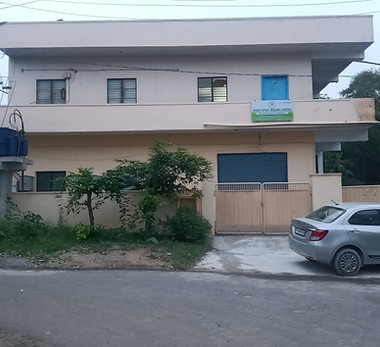
Asia's 1st Full Stack Agricultural Value Chain Company

Tissue Culture
Tissue culture is a biological research technique that involves growing cells, tissues, or organs in a controlled environment outside of an organism. The cells or tissues are grown in a nutrient-rich medium, such as broth or agar, and can be used to study how cells function, change, or interact with other cells
.jpeg)
Welcome to our tissue culture laboratory located in Assam, specializing in potato tissue culture. Our dedicated unit supports potato production across three states: Assam, West Bengal, and Bihar. The high-quality potato seeds produced here are essential for farmers, ensuring successful cultivation and contributing to local agriculture. We are committed to providing innovative solutions to enhance potato farming in the region.

Welcome to our tissue culture laboratory, specializing in the cultivation of high-quality banana plants. Our advanced techniques that our tissue-cultured banana plants caters to various regions, Uttar Pradesh and the Andhra Coastal belt. We are committed to providing farmers with healthy, disease-free plants that enhance productivity sustainability in banana farming. Join us in advancing the future of banana!

Potato tissue culture is a method for growing potato plants in sterile conditions using a culture medium. The process involves several steps, including:
-
Growing the shoots: After growing the shoots at 20–25°C, root and pot them out.
-
Testing for viruses: Test the treated plants for the presence of viruses
-
Pretreating the potato: Grow the potato shoots at a higher temperature (32–37°C).
-
Sterilizing: Surface sterilize the cut shoots.
-
Excising the meristems: Remove the apical and axillary meristems, which are 0.3–4.7 mm long.
-
Transferring the meristems: Place the excised meristems in a tube containing a liquid culture medium.

Tissue culture is a process that involves growing plant cells or tissues outside of a natural organism. It can be used to propagate bananas, and has several advantages, including:
-
Mass propagation
Tissue culture can be used to mass propagate a desired line of plants.
-
Rapid production
Tissue culture can be used to rapidly mass produce plants for breeding purposes.
-
Disease-free plants
Tissue culture can produce disease-free planting materials, which can help ensure healthy crop growth.
-
Disease management
Tissue culture can help integrate disease management programs into banana cultivation.
The process of banana micropropagation using tissue culture involves the following steps:
-
Sterilize shoot tips from the parent banana plant
-
Shoot and root in a test tube
-
Harden the plant in the laboratory
-
Harden the plant again in the nursery
-
Plant in the field
The parental pseudostem, small suckers, peepers, lateral buds, the apex of the inflorescence, and axillary flower buds are all suitable explants for tissue culture initiation.

Here are some varieties of potatoes grown in India:
-
Kufri Chandramukhi
This potato has a green stem with red-brown stripes and takes 80–100 days to mature. It can be found in Bihar, Gujarat, Haryana, Punjab, Madhya Pradesh, Himachal Pradesh, Uttar Pradesh, Orissa, and West Bengal.
-
Kufri Jyoti
This potato is known for its resistance to late blight, a common potato disease. It has a smooth texture and is ideal for making chips, fries, and mashed potatoes. It is widely cultivated in India, especially in North Indian states like Punjab and Uttar Pradesh.
-
Kufri Alankar
This potato is recommended for cultivation in Punjab, Haryana, and Uttar Pradesh. The plants are tall with thick stems and the tubers are oblong in shape.
.jpeg)
Grand Naine, Red banana, Theni Nendra, Trichy Nendran, Elakki, Poovan are the banana tissue culture varieties available in India